Myanmar: Rakhine State
I’m not here to talk politics – but what I will say is this; to those who have been
critical of my choice of going to Myanmar as disregarding the current situation, a boycott of Myanmar does not affect the government. It does not affect those in
power, those in the military, those with money.
It affects the local fisherman who
was relying on taking tourists out on his boat for extra income. It affects the farmer who would normally spend the winter guiding visitors on treks
through the mountains. It affects the young girl who now only works 2 days a week as
the hotels are half empty. These are the people it affects. These are the
people who are now struggling as their annual income has decreased due to
tourism dropping by 40% this year. These are the people who no matter where we
were in the country, were kind and generous and beyond welcoming to us. These
are the people who thanked us for still coming and were so proud to show us the
favourite parts of their country.
So that is what I wish to show
you – the beauty, magic and stories of Myanmar that I got to experience thanks
to these people.
__
I think I got my first reality
check of where we were going when we were refused boarding onto our flight from
Bangkok to Yangon, due to the fact we had not printed our ELECTRONIC visas. “Yangon
is like no other airport in the world” the angry Thai lady told us. “You must
print or you do not get on plane”. They say the journey is half the fun, but to
be honest, I could have done without the panicked sprint around Bangkok’s huge
airport trying to find somewhere to print the visa with 6 minutes until the
gate closed.
Well she was sort of right, it
was recognisable as an airport – security, passport control, baggage – but not
as we know it. Passport control was all done on paper. The printed visa was
stamped, my passport number was written down. This was a pattern that continued
throughout flights within Myanmar. Arriving at domestic airports and being sent
to “immigration” consisting of a man behind a desk with an immigration sign,
who took our passports, wrote down the number on a piece of paper and then
handed them back. Baggage collection was a free-for-all with locals grabbing bags
off the tarmac before they even reached the building terminal. Having said
that, despite some of the flights operating on Myanmar time, it was a
relatively slick operation considering nothing was done electronically.
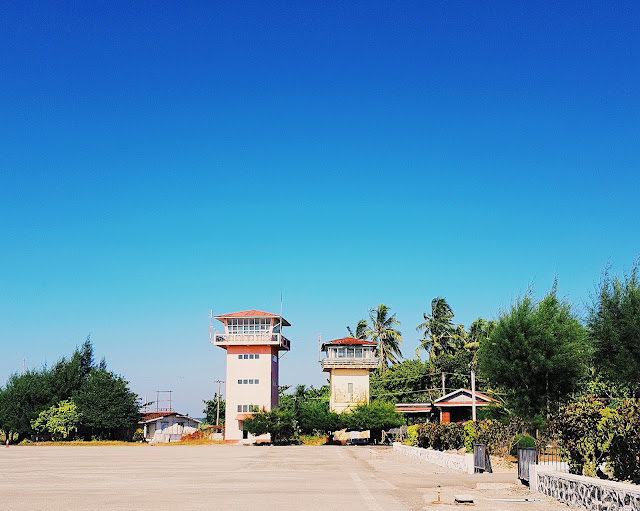 |
| Flight control towers at Thandwe Airport |
The perks of jetlag meant that on
Day 1 I was up before the sun and got to witness the rustic fishing village of
Gyeik Taw in its full glory. The boats that we saw setting off the previous
evening had returned and the job of unloading the catch had begun. Children ran
back and forth carrying buckets overflowing with fish of various sizes. The
women sat on the beach with their straw hats and faces painted yellow with Thanaka
(a paste ground from tree bark used as sun protection) sorting through the fish
and laying them out to dry on straw and nets. The tiny fish are ground into a
paste – a local delicacy – and those which aren’t sold are fed to the chickens,
which turns their yolks white apparently. The beach of Gyeik Taw was a melting
pot of discarded nets, plastic bottles, broken glass, fish heads and human
excrement, a vast contrast to the pristine white sands of Ngapali where
we were staying, 3km further down the beach. Despite the hotels which have sprung up around Ngapali, Gyeik Taw retains its traditional rural existence and has been largely unaffected by the more modern developments.
 |
| Gyeik Taw Fishing Village |
We jumped into a trishaw and
followed the fish 6km inland to Thandwe Central Market. Thandwe is a key
Rakhine town and the market place was as authentic and bustling as you could
want in a Southeast Asian city. With one exception: the entire time we wandered
the market, not one person tried to sell us their wares. There was no hawking
or harassment. In fact, the market sellers were more amused that we were there
at all and that we were interested in their daily life. Our attempts at saying hello "Mingalabar" was met with much laughter and bright smiles.
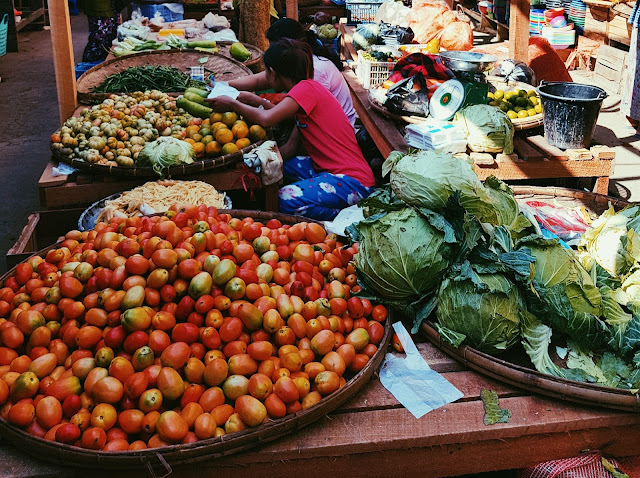 |
| Thandwe Market |
Ngapali (pronounced Napoli – like
the Italian city) is a secret paradise yet to be properly discovered, right on
the Bay of Bengal. Unlike other beach destinations where you are fighting for
sand space, most days here were spent only in the company of the local ladies
selling tropical fruit and the Red Sand Crabs making intricate patterns on the
shore. We got a fisherman to take us out to Pearl Island, a little rocky
outcrop just off the coast. I’d been told the waters around the island were
beautifully clear, and they didn’t disappoint – although like the rest of the
world the coral was pretty miserable. The young fisherman sailed us over to the
village where he lived; amazing bamboo houses on stilts by the edge of the
water. However, one family member has to live on the boat full time as there is
a constant need to bail out water; quite disconcerting when this is continually
done out at sea. His family catches prawns and shrimp, which is very much part
of the local diet here. Sometimes they head out further to sea – a further 5
hours out – to catch Barracuda. Having been on that boat on the calmest of days,
I could not imagine taking it out on rough seas, the slightest movement caused
it to tip, nearly throwing us overboard. On our way back to shore the engine
cut out and no amount of tinkering could get it started so we were pretty
relieved when another fishing boat passed by and offered to tow us safely back to dry land.
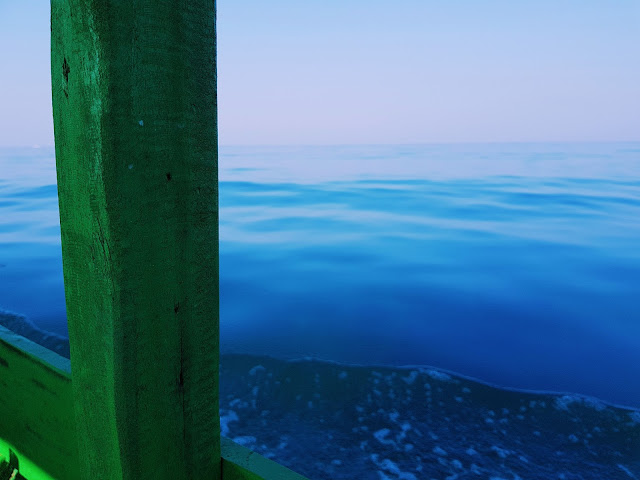 |
| Sailing out into the Bay of Bengal |
 |
| Shrimping Boats |
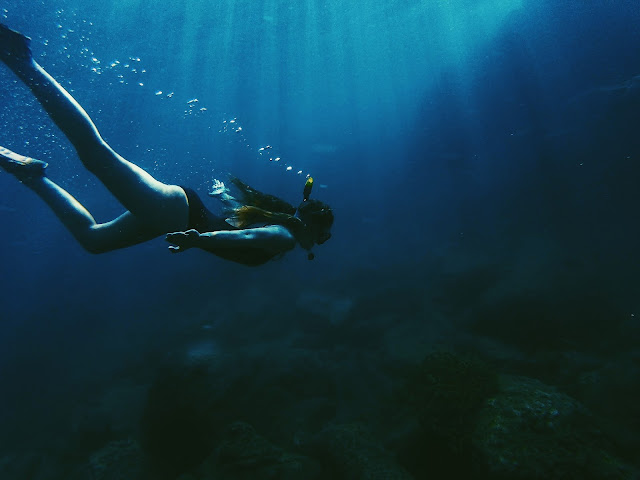 |
| Pearl Island |
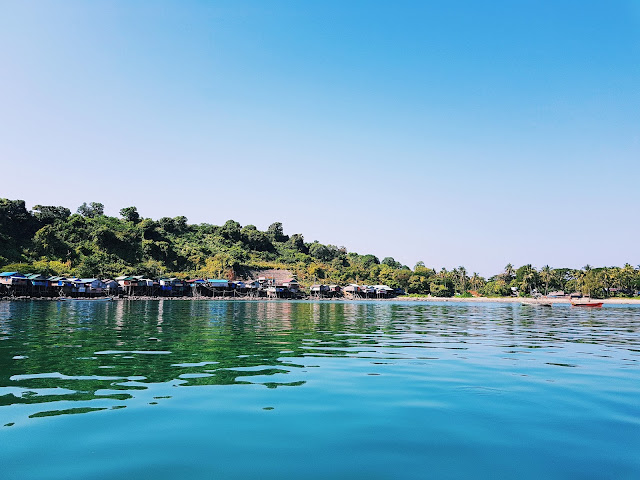 |
| Fishing Village Life |
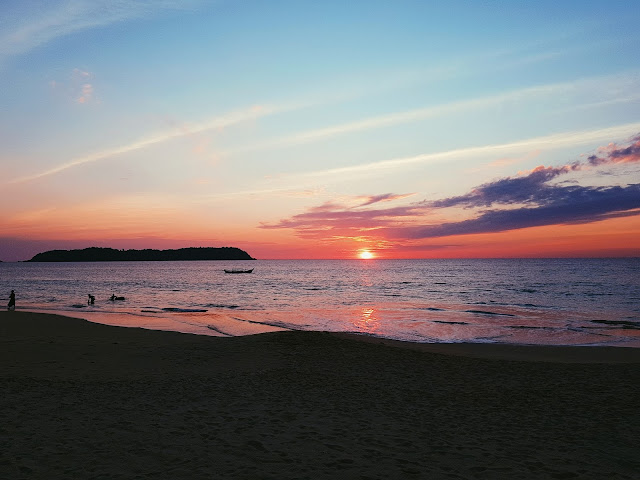 |
| Sunset on Ngapali - Pearl Island in the background |
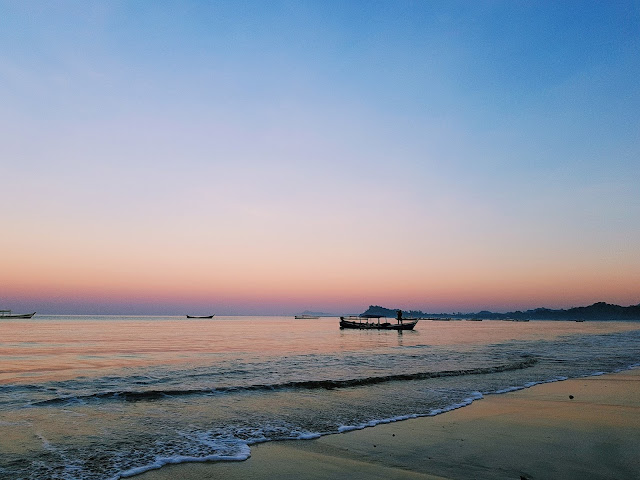


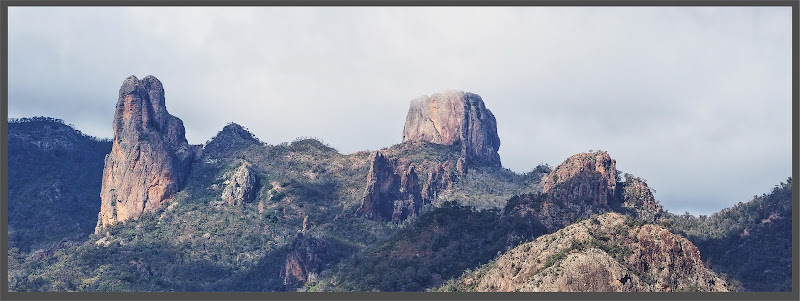
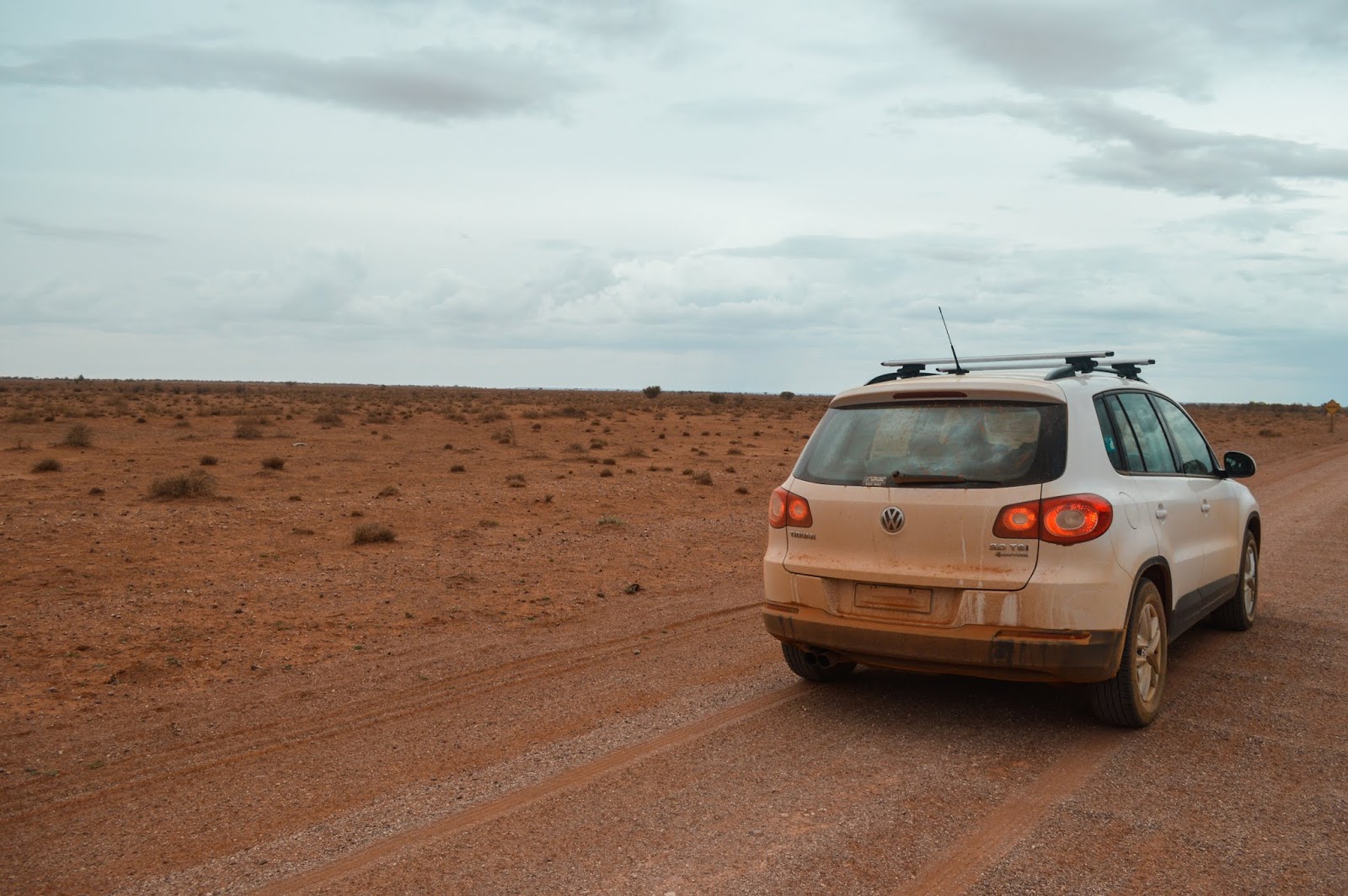
Comments
Post a Comment